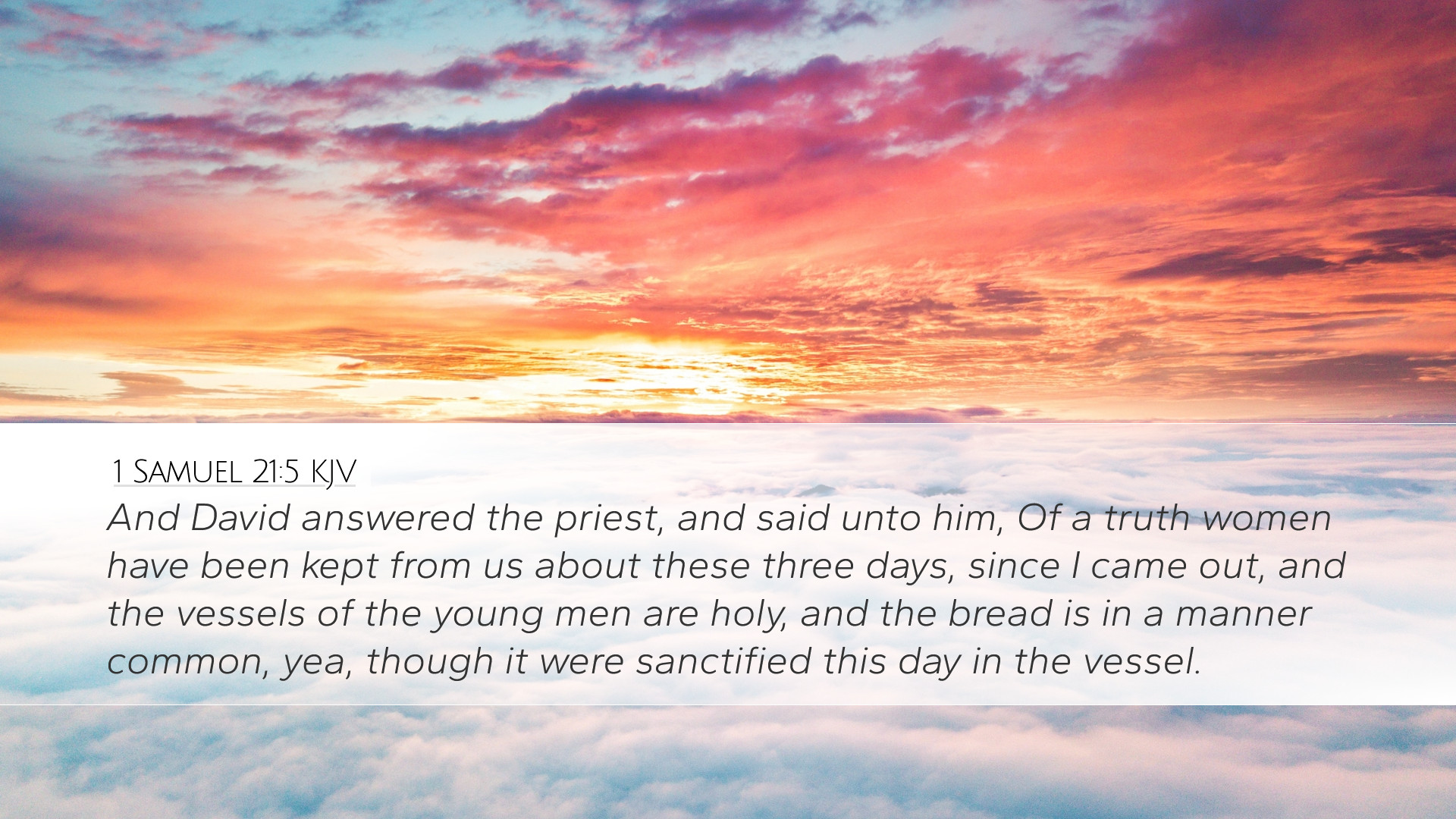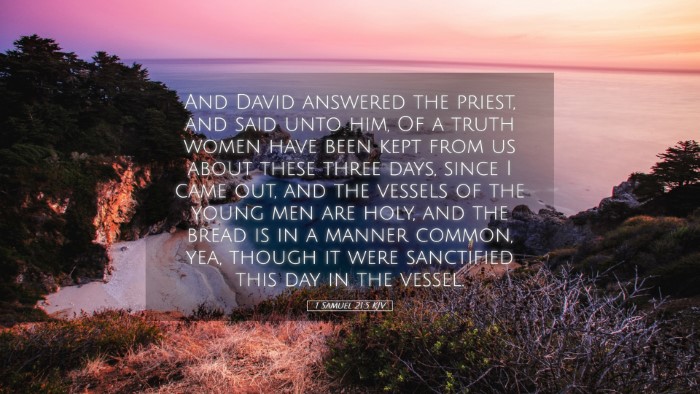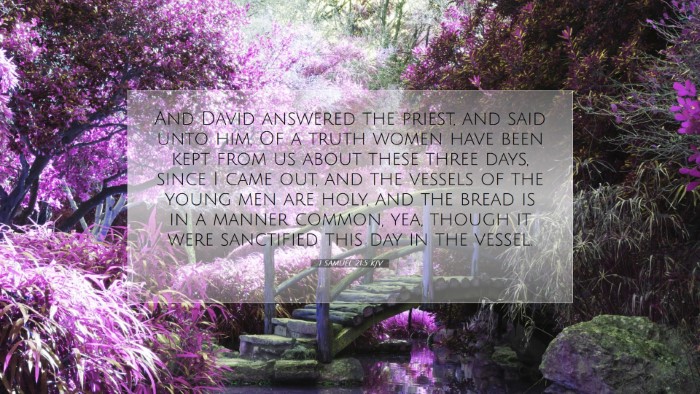Commentary on 1 Samuel 21:5
Verse: "And David answered the priest, and said unto him, Of a truth women have been kept from us about these three days." (1 Samuel 21:5)
Introduction
This verse is situated in a significant narrative where David, fleeing from King Saul, seeks sustenance from Ahimelech the priest at Nob. The context highlights David's precarious situation and the lengths to which he goes to preserve his life and the lives of his men. This commentary synthesizes insights from Matthew Henry, Albert Barnes, and Adam Clarke, providing a comprehensive understanding of this scripture's meaning and implications.
Contextual Background
In the preceding chapters, we find David on the run due to Saul's growing jealousy and fear of David's rising popularity among the people. David's desperate search for food leads him to the house of Ahimelech, where he not only seeks sustenance but also hopes to receive divine guidance and support.
Historical Context
- The relationship between David and Saul demonstrates the complexity of leadership and divine election; Saul, once favored by God, is now rejected, while David, anointed as king, finds himself an outlaw.
- Ahimelech represents the faithful priest caught in the crossfire of royal treachery. The temple's provisions are vital not just for physical survival but also for spiritual nourishment.
Spiritual Significance
David's remark about women being kept from them signifies the ritual purity that priests were concerned with during their service. David emphasizes this point to demonstrate the seriousness of their situation. The underlying message here is profound:
- David exhibits a heart of desperation—a picture of humanity's encounters with trials and tribulations.
- The absence of women also might imply a divine order or a temporary sanctification essential for their mission; David respects the divine protocols even amidst desperation.
Insights from Commentators
Matthew Henry
Henry notes that David's presence at Nob was a significant step in God's plan, even if it appeared desperate by human standards. He highlights that David's answer reflects humility and genuineness as he shares the dire state of his needs.
Albert Barnes
Barnes remarks on the importance of the ceremonial laws of the priests, stressing that David’s statement underscores the necessity for physical purity prior to receiving sustenance. He further explains that the urgency of David's situation allowed for exceptions, mirroring the balance between law and mercy.
Adam Clarke
Clarke emphasizes the moral and ethical implications surrounding David’s actions. He suggests that this illustration of David reveals his reliance on God’s provision above the constraints of ceremonial law. Clarke also points out the potential for a deeper symbolic meaning in the purification rites related to both physical and spiritual sustenance.
Theological Implications
This verse, while simple on the surface, invites deeper reflection on several theological themes:
- Grace vs. Law: The interplay between adherence to the law and the exercise of grace highlights the essence of God's kingdom where the spirit of the law prevails over its letter.
- Divine Providence: David’s experience shows God's providential care for His chosen ones, even in dire circumstances, reaffirming that God is near to those who seek refuge in Him.
- Human Dependence on Divine Support: David acknowledges his need for sustenance, symbolizing humanity’s ultimate reliance on God's provision.
Conclusion
1 Samuel 21:5 serves as a rich text for reflection on human frailty and divine sustenance. The insights gleaned from revered commentators enrich our understanding of this passage, illustrating the complex interplay between the sacred requirements of the law and the compassionate nature of God. In our ministries and studies, may we draw strength from David's example, recognizing that in our most desperate hours, God provides for our needs and leads us toward His purposes.


